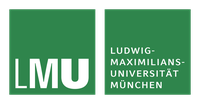Zusammenfassung
- Was Call For Papers — Call for Papers: Interdisciplinary Conference "Objects & Organisms. Vivification, Reification, Transformation"
- Wann to (Europe/Berlin / UTC100)
- benötigte Unterlagen One-page abstract; brief CV
- Termin herunterladen iCal Datei herunterladen
Beschreibung
Within the increasingly complex field of Material Culture Studies, redefining the anthropocentric understanding of power to act and interact with regard to objects has become commonplace. Yet, it is only since modern times that the 'living world' and the 'material world' have formed two opposing categories of western ontology. The notion that objects are capable of acting and possess intentionality already existed in pre-modern times and is discussed again today under the buzzword 'agency'. Especially in the age of the 'internet of things', self-learning artificial intelligence and digital assistants, the boundaries between subject and object seem to lose their validity. Thus, material products are endowed with a 'personality' and are individualized, while the current capitalist system fosters a reification of persons as well as of social bonds and experiences.
By now, the anthropomorphizing view of objects has evolved into a research paradigm that we would like to investigate within the framework of an interdisciplinary conference. In order to approach the relationship between objects and organisms from two different angles and across time, the conference will deal with objects that, on the one hand, can be considered as imitations of living organisms in certain situations or through certain characteristics (‘vivification). Such objects resemble human beings (anthropomorphic), animals (zoomorphic), or plants (phytomorphic), thereby suppressing their inanimate, artificial status. Not only in reality, but also in literature and the visual arts, there are such objects, of which form, function, the manufacturing process or materiality are represented or described as organic. On the other hand, however, organisms that in turn attain the status of an object are also to be taken into account ('reification'). They should serve as a productive negative in order to reconsider the relationship between objects and organisms.
Topics may include, but are not limited to the following:
- Practices of the vitalization of objects (fetishes, ritual objects, sexualized objects)
- Animation and fiction(illusion of liveliness and movement automats, film history, computer animations)
- Animisms in the humanities (it-narratives, object biographies and agency theory)
- Musealization and auratization (objects in collections, taxidermy, conservation)
- Economic objectification (consumer behavior, product cults, commodification of culture and nature)
- Technological objectification (human-machine-hybrids, AI, similarity between humans and objects)
Confirmed keynote speaker: Kevin Liggieri (ETH Zürich)
We welcome proposals for 25-minute talks in English and German. Please send a one-page abstract and a brief CV to romana.kaske@germanistik.uni-muenchen.de by April 21. Travel and accommodation costs can be subsidized according to our funding.
Organizing committee:
Ella Beaucamp (LMU Munich / Deutsches Studienzentrum in Venice)
Romana Kaske (LMU Munich)
Thomas Moser (LMU Munich)

